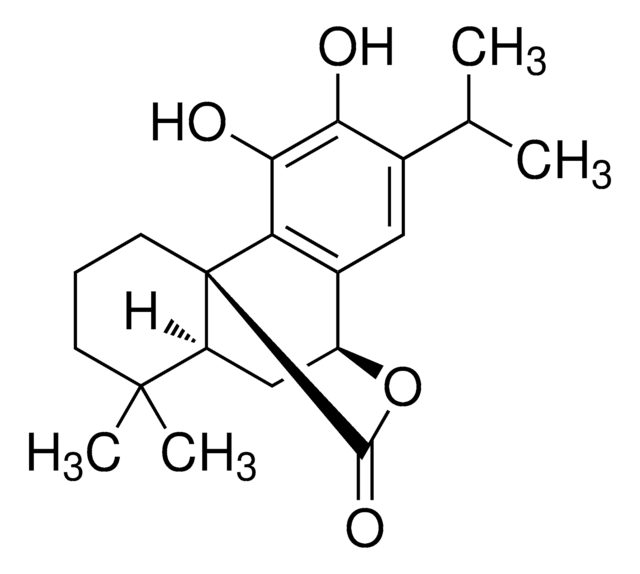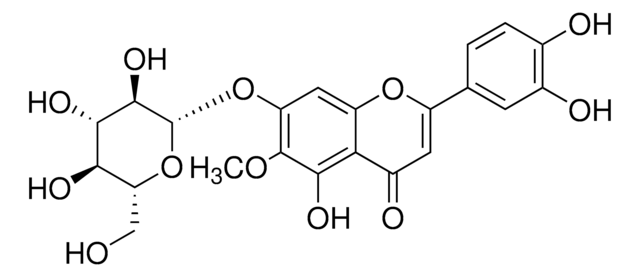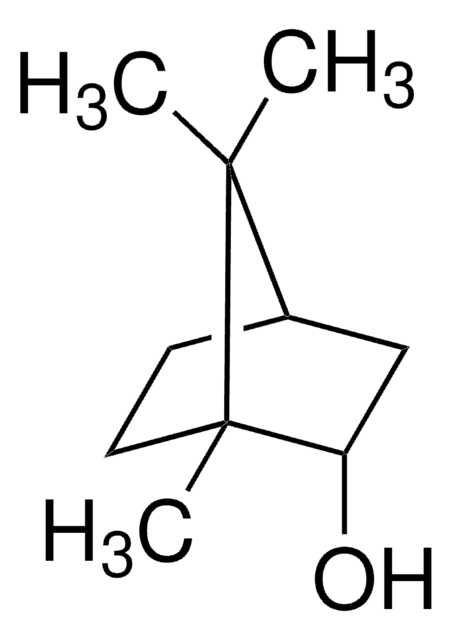Fontos dokumentumok
49702
Carnosol
analytical standard
Szinonimák:
Picrosalvin
About This Item
Javasolt termékek
biológiai forrás
Rosemarinus officinalis L. leaves
Minőségi szint
grade
analytical standard
Teszt
≥98.0% (HPLC)
eltarthatósági idő
limited shelf life, expiry date on the label
technika/technikák
HPLC: suitable
gas chromatography (GC): suitable
alkalmazás(ok)
food and beverages
format
neat
tárolási hőmérséklet
−20°C
SMILES string
CC(C)c1cc2[C@@H]3C[C@H]4C(C)(C)CCC[C@]4(C(=O)O3)c2c(O)c1O
InChI
1S/C20H26O4/c1-10(2)11-8-12-13-9-14-19(3,4)6-5-7-20(14,18(23)24-13)15(12)17(22)16(11)21/h8,10,13-14,21-22H,5-7,9H2,1-4H3/t13-,14-,20+/m0/s1
Nemzetközi kémiai azonosító kulcs
XUSYGBPHQBWGAD-PJSUUKDQSA-N
Looking for similar products? Látogasson el ide Útmutató a termékösszehasonlításhoz
Általános leírás
Alkalmazás
Biokémiai/fiziológiai hatások
Kiszerelés
Egyéb megjegyzések
Figyelmeztetés
Warning
Figyelmeztető mondatok
Óvintézkedésre vonatkozó mondatok
Veszélyességi osztályok
Skin Sens. 1
Tárolási osztály kódja
11 - Combustible Solids
WGK
WGK 3
Lobbanási pont (F)
Not applicable
Lobbanási pont (C)
Not applicable
Válasszon a legfrissebb verziók közül:
Már rendelkezik ezzel a termékkel?
Az Ön által nemrégiben megvásárolt termékekre vonatkozó dokumentumokat a Dokumentumtárban találja.
Az ügyfelek ezeket is megtekintették
Tudóscsoportunk valamennyi kutatási területen rendelkezik tapasztalattal, beleértve az élettudományt, az anyagtudományt, a kémiai szintézist, a kromatográfiát, az analitikát és még sok más területet.
Lépjen kapcsolatba a szaktanácsadással







